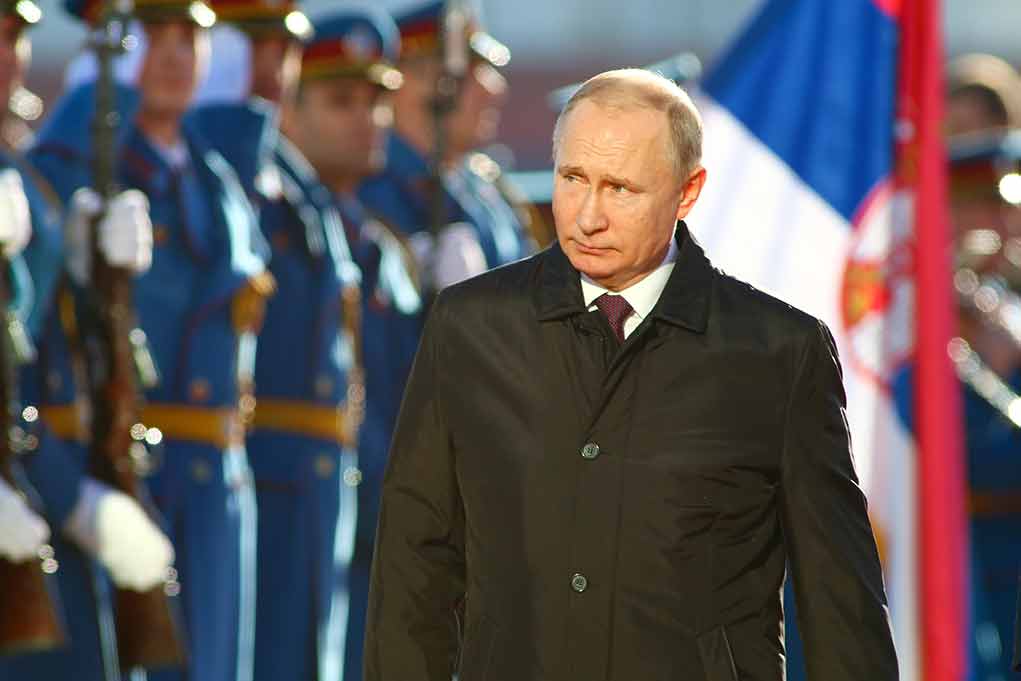
International concerns intensify as Russia is suspected of sabotaging critical undersea telecom and power cables, threatening global communication networks.
Key Takeaways
- Russia is accused of engaging in cable sabotage in strategic maritime regions like the Baltic and North Seas.
- Russian “shadow fleet” activities complicate policing and increase the geopolitical stakes.
- NATO and EU officials are urged by telecom companies to enhance protection of undersea infrastructure.
- Potential global internet blackouts are a major concern related to these covert operations.
- A large, covert Russian fleet conducting reconnaissance missions poses significant threats.
Russia’s Alleged Operations
Recent security reports suggest that Russian involvement in undersea cable sabotage is becoming more overt. Incidents involving aging tankers severing cables in the Baltic Sea underscore the perceived threat. European officials directly accuse Russia of strategic interference, suspecting a systematic attack on infrastructure. These acts form a broader campaign associated with Russia’s “shadow fleet,” comprising an estimated 1,400 vessels that evade detection through aggressive maneuvering and strategic ambiguity. The situation positions such operations as a part of the grey zone tactics deployed by adversaries like Russia and China.
Telecom companies, including Vodafone, have reached out to European governments and NATO, issuing warnings about the threat to this critical infrastructure. Their urgent appeals stress that substantial service disruptions could severely harm global communications and financial networks if actions against these threats are not prioritized. An open letter from these companies highlighted connections between cable damage and potential worldwide consequences—including blackouts affecting everyday life. The predominance of Russian vessels in such adverse activities only increases the pressure on protective measures.
International Reactions and Preparedness
Key European security efforts, like the “Baltic Sentry” program, strive to mitigate these risks. However, challenges arise when enforcing compliance on vessels operating outside territorial waters. Experts estimate that monitoring the expansive fleet poses formidable challenges, requiring intensive international cooperation. Legal complications further hinder rapid responses to perceived threats, as existing maritime laws struggle to adapt in response to sophisticated maneuvering by hostile entities.
The shallow depths of regions like the Baltic Sea heighten exposure to sabotage, exacerbating concerns. Damaged cables are expensive and complex to repair, hindered by limited resources for timely action. In response to these emerging realities, NATO and EU members are investing in additional protective initiatives and infrastructure enhancement. Still, maintaining vigilance remains critical as they strategize against the backdrop of heightened tension and increased operational stakes.
How robot submarines fight to keep the UK's lights on in North Sea drone battle | Cahal Milmo, iNews
As Russia likely deploys autonomous submarines to map and monitor vital data cables in UK waters, the “drone war” that has developed in the skies above the battlefields of… pic.twitter.com/K6zKvy0ttt
— Owen Gregorian (@OwenGregorian) December 25, 2024
Implications for Global Security
International stakeholders face pressing decisions about reinforcing protections and innovating responses to these covert activities. The potential volatility and vast reach of network sabotage could provoke significant unrest in communications worldwide. It underscores vulnerabilities stretching beyond Europe, threatening the stability of international economic and communication systems, as echoed by telecom companies stressing the broad ramifications of these incursions.
Ultimately, these developing narratives around cyber and actual warfare highlight global security’s nuanced and complex landscape. Agencies must balance vigilance and legal adherence while remaining agile against such formidable threats. The ongoing dialogue and proactive engagement of national and international bodies are crucial to ensure robust responses capable of minimizing risks to these essential infrastructures.
Sources:
- Cable-slicing ships show Russia pressing on a Western weak spot
- Russian cable attacks ‘threaten to cut off world’s internet’
- Europe’s new war with Russia: Deep sea sabotage – POLITICO
- Russia could cause ‘worldwide internet blackouts’ by sabotaging undersea cables as Nato warned over danger posed to ‘defenceless’ cables used for vital infrastructure | Daily Mail Online











